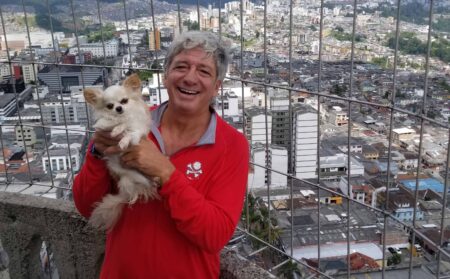The Koli people are the original inhabitants of the land where Mumbai now exists. Their homes are spread across numerous coastal fishing villages in the area, but the city’s development plans ignore their role in maintaining the local ecosystem.
Instead of waiting to do something about the rising risks of climate disruption, the Koli have decided to respond using their culture’s traditional methods – and it is working.
The Koli Are Working to Restore the Mangroves
Much of Mumbai sits on reclaimed land. Rapid growth has led to urban sprawl, creating fishery and biodiversity problems while issues with litter spread. As the mangroves disappear, more extreme weather events damage the aquaculture industry in the region.
The Koli people produced information to report how cyclones have struck with greater intensity and frequency. This information has led them to collaborate with various groups to understand why mangroves are necessary for flooding protection and biome diversity.
In India’s caste system, the Koli’s traditional focus was on agriculture and fishing. This knowledge has helped them create coastal restoration opportunities while reducing the influences of litter and waste in local waters – even when the government won’t regulate environmentally unfriendly actions from others.
Mangroves Were Being Cleared for Golf Courses
The Conservation Action Trust is a non-profit organization in Mumbai that works to protect local wildlife and forests. With its partnership with the Koli people, the clear-cutting efforts of these coastal areas received more scrutiny. [[1]]
Builders and developers removed the protective mangroves to build everything from golf courses to transportation infrastructure. In some instances, sites were turned into pseudo-landfill areas where trash was indiscriminately dumped.
Sujit Patwardhan was a founding member of the trust, which began its work in 1982. He has focused on creating sustainable urban transportation policies for nearly 30 years. “We need river rejuvenation and sewage treatment plants, not concretization along riverbanks,” he recently told the government. “Please – let’s learn from the mistakes of the west.”
Mr. Patwardhan told us exclusively that environmental destruction could not be the legacy we leave our children. “Travel demand management policies are still needed because we cannot please everyone who wants an automobile on the road,” he said. “Elevated highways won’t solve traffic problems or protect us against urban sprawl.”
VK Madhavan, the head of WaterAid India, agrees with Patwardhan’s perspective. “We are grappling with issues, with areas that have arsenic contamination, fluoride contamination, with salinity, with nitrates,” he said. “Poor quality of water – that is loss of livelihood.”
Traditional Knowledge Is Making a Huge Difference
The Bhoomiputra Foundation is focused on making the lives of the Koli people and other indigenous tribes better. One of the ways they’ve been effective at restoring Mumbai’s natural areas is by spreading the traditional knowledge of those who lived there when it was a series of seven islands.
The Koli culture have always used natural resources in ways that made them one with the land. By using bark, shells, twine, and rocks, they could fish, hunt, and farm using sustainable practices.

Everything is used in ways where harmony with Mother Nature is encouraged. Their desire is to protect the land first and live from it second, and that perspective is needed in today’s India. Since the government won’t regulate industries or agricultural applications, the Koli’s knowledge of the land is being put toward modern tools that encourage restorage.
One Trash Collection Effort Collected Over a Half-Ton of Waste
Almost 70% of India’s waterways are classified as contaminated, and it’s become a national emergency. Acute water shortages and pollution are killing 200,000 people each year. [[2]]
Even when water flows from taps, the mixture of garbage and waste leads to infections and disease. Estimates suggest that dirty water contributes to 20% of India’s overall disease burden. Only one-third of the wastewater gets treated, which means raw sewage eventually makes its way to the groundwater tables.
The Koli community partnered with Bombay61 to implement measures to improve local water quality. In just 72 hours, three net filters captured over 1,100 pounds of debris from a single creek by fusing their traditional knowledge with modern products. [[3]]
Non-Koli people often see creeks as a drain instead of a legitimate waterway and coastal ecosystem. By changing this perception through the spreading of traditional knowledge, the goal is to conserve and enhance Mother Nature’s benefits while allowing Mumbai’s expansion plans to continue.
What the Koli Experience Today Could Be India’s Problem Tomorrow
Crippling water problems, driven by coastal management and climate-driven changes, could reduce India’s economy by 6% or more. The Koli people have already seen these effects as they respond to cyclone wave surges, localized flooding, and habit degradation using the methodologies developed by their ancestors.
The water quality is so bad in cities like New Delhi and Bengaluru that bodies of water emit toxic clouds of white foam because of all the effluents and garbage dumped into them. The latter town was once called the City of Lakes, but now Bellandur Lake is catching on fire because of all the pollutants. [[4]]
The wisdom of the Koli people can save Mumbai and India. If you’d like to get involved with their active projects, you can reach out to Tapestry, Conservation Action Trust, and Bombay61 to discuss what options are available.
Local water treatment and coastal preservation agencies also need your help! Over 60% of American beaches tested “unsafe” because of water pollution at least one day each year. When we all work together, we can be the change we want to see in the world.
References:
[[1]] https://cat.org.in ;[2]] https://www.reuters.com/article/us-india-water-crisis/indias-worst-water-crisis-in-history-leaves-millions-thirsty-idUSKBN1JV01G
[[3]] https://www.weforum.org/agenda/2022/11/learn-fishing-communities-managing-climate-risks-and-change/ ; [[4]] https://www.youtube.com/watch?v=W84vziBNp-w











